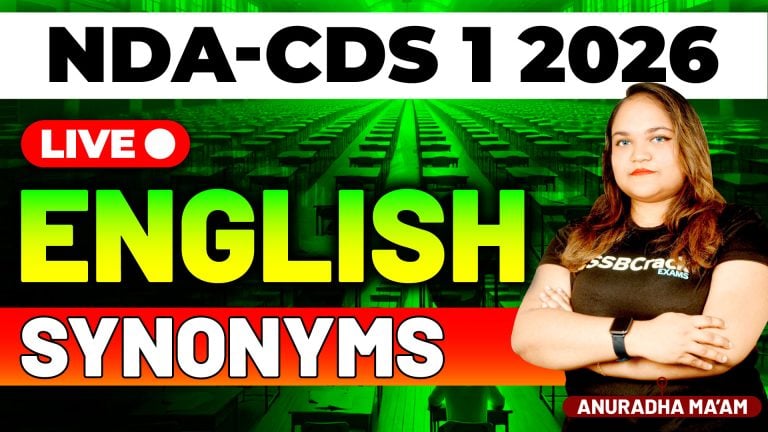The National Defence Academy (NDA) entrance examination is a crucial milestone for aspiring cadets, shaping their journey towards a distinguished career in the armed forces. Among the various subjects covered in the NDA examination, Chemistry holds significant importance, particularly the segment focusing on Acids, Bases, and Salts. In the pursuit of mastering this domain, the strategic utilization of Multiple Choice Questions (MCQs) emerges as a potent tool. This article aims to elucidate the significance of MCQs in understanding the complexities of Acids, Bases, and Salts Chemistry Lecture for the NDA 1 2024 examination.
- Assessing Fundamental Knowledge: MCQs serve as an effective mechanism to evaluate candidates’ fundamental knowledge in Chemistry. Questions ranging from basic concepts to intricate principles allow candidates to gauge their understanding of the subject matter. By attempting a diverse array of MCQs, aspirants can identify areas of strength and areas requiring further improvement, thus facilitating a targeted approach towards preparation.
- Enhancing Conceptual Understanding: The structured format of MCQs aids in reinforcing conceptual understanding. Each question presents a scenario or problem, prompting candidates to apply their theoretical knowledge to arrive at the correct solution. This process not only consolidates fundamental concepts but also cultivates analytical thinking and problem-solving skills essential for success in the NDA examination and beyond.
- Adaptive Learning: MCQs offer a platform for adaptive learning, wherein candidates can iteratively refine their knowledge base through repeated practice and reinforcement. Aspirants can utilize MCQs as a diagnostic tool to identify areas of weakness, subsequently dedicating focused study sessions to bolster comprehension and retention. Additionally, the immediate feedback provided by MCQs facilitates real-time assessment, enabling candidates to track their progress and tailor their study strategies accordingly.
Conclusion: In the context of the NDA 1 2024 examination, the significance of MCQs in mastering Acids, Bases, and Salts Chemistry Lecture cannot be overstated. Through their multifaceted utility in assessing fundamental knowledge, enhancing conceptual understanding, facilitating time management, ensuring comprehensive coverage, and fostering adaptive learning, MCQs emerge as indispensable assets for aspirants seeking success in the examination. By leveraging the strategic utilization of MCQs as a cornerstone of their preparation strategy, candidates can navigate the complexities of Chemistry with confidence and proficiency, thereby inching closer toward realizing their aspirations within the esteemed corridors of the National Defence Academy.
Acids, Bases & Salts MCQs
- Which Of the Following Household Items Contains Sulphuric Acid?
A. Battery
B. Vinegar
C. Toothpaste
D. More than one of the above
ANSWER: A - Acids That Contain Hydrogen and Other Non-metallic Element(s), Except
Oxygen, Are Called:
A. Dilute acids
B. Hydracids
C. Strong acids
D. More than one of the above
ANSWER: B - Which Of the Following Are Present in A Dilute Aqueous Solution of
Hydrochloric Acid?
A. H3O+ + Cl–
B. H3O+ + OH–
C. Cl– + OH–
D. More than one of the above
ANSWER: A - Acids React with Metals to Liberate:
A. Carbon monoxide
B. Water
C. Hydrogen
D. More than one of the above
ANSWER: C - Which Acid Is Present in Tamarind?
A. Tartaric acid
B. Citric acid
C. Acetic acid
D. More than one of the above
ANSWER: A
For More MCQs On This Topic Refer To the video & Attached PDF







